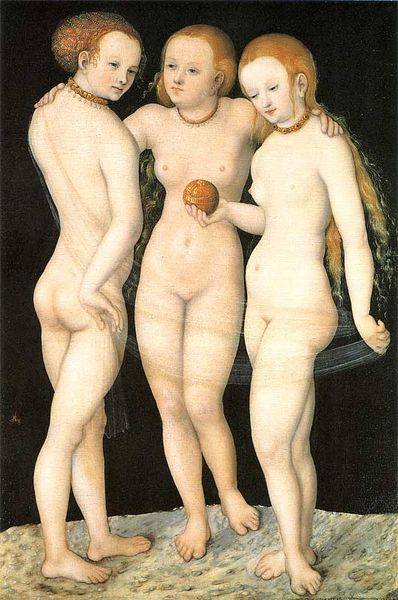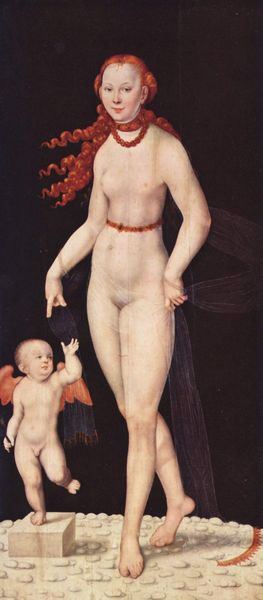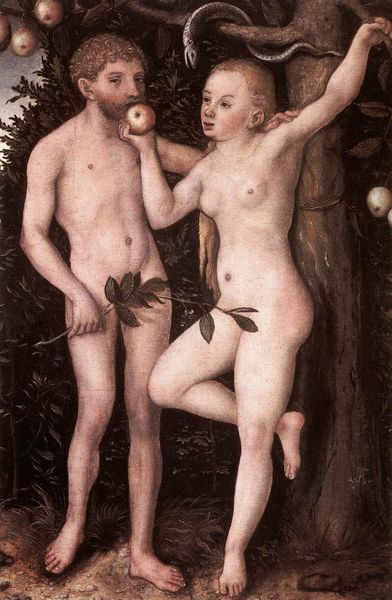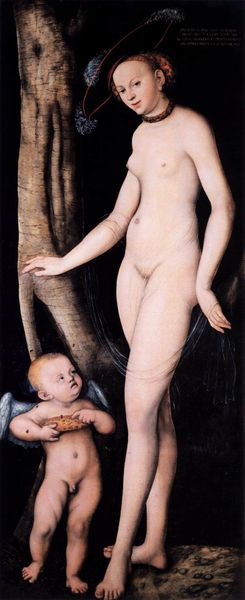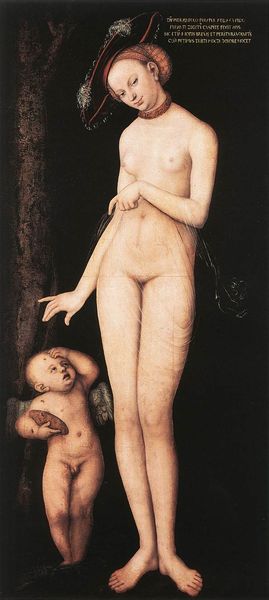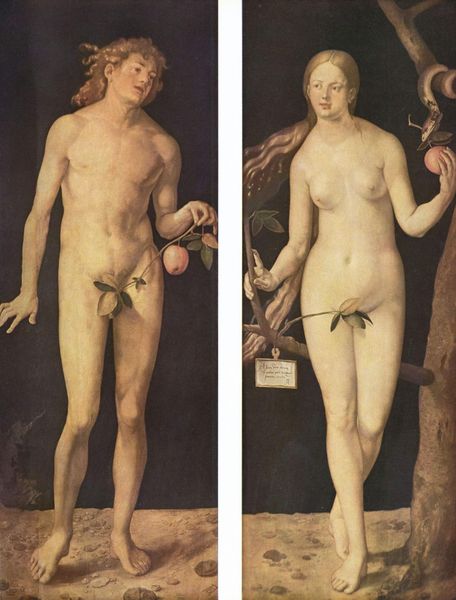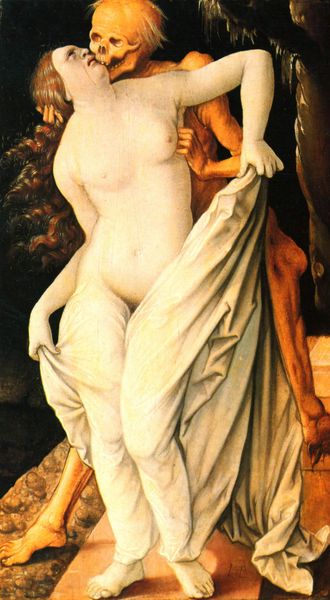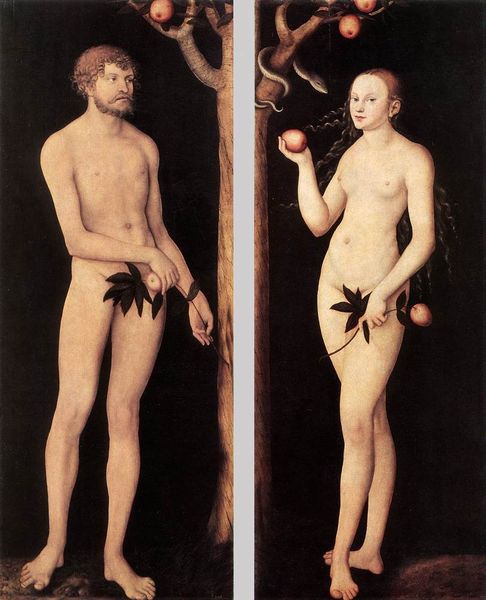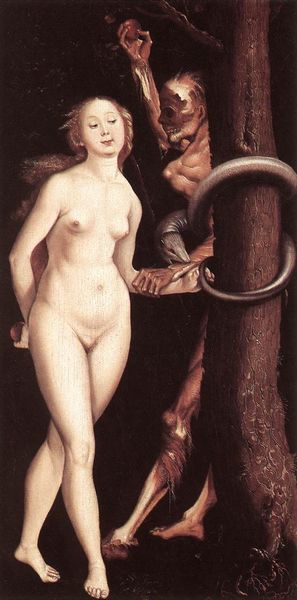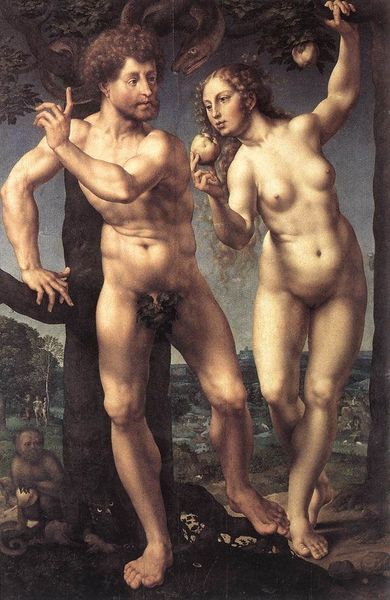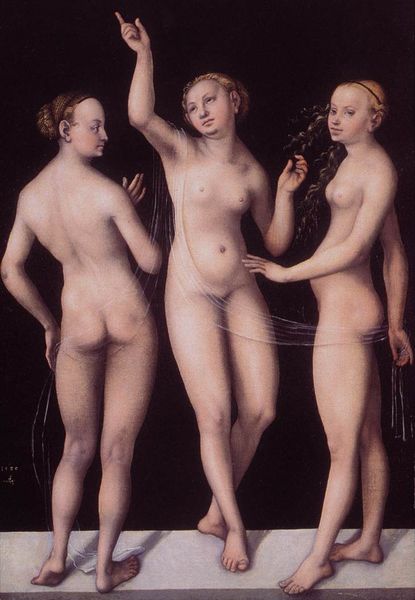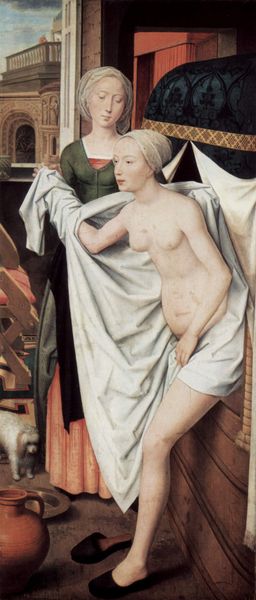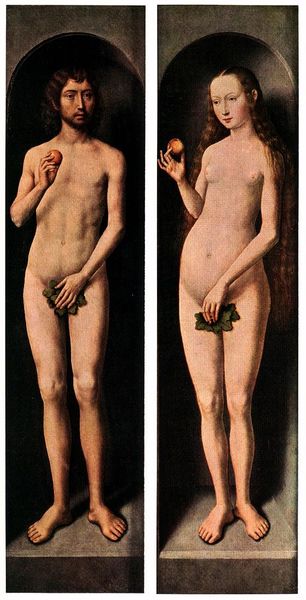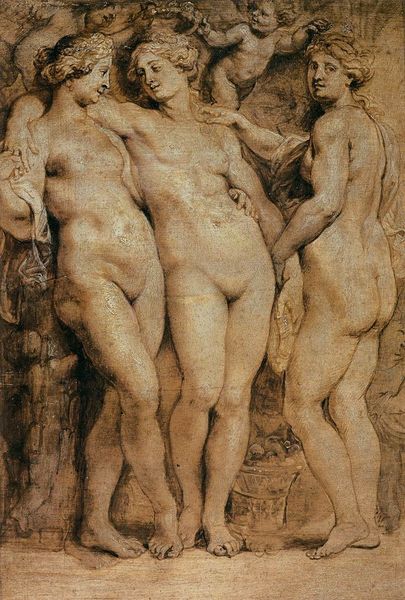
oil-paint
#
allegory
#
oil-paint
#
figuration
#
11_renaissance
#
oil painting
#
christianity
#
human
#
history-painting
#
northern-renaissance
#
nude
#
portrait art
Dimensions: 148 x 67 cm
Copyright: Public domain
Hans Baldung painted Adam and Eve sometime in the first half of the 16th century, using oil paint on limewood panels. Oil paint involves a complex layering process, and Baldung uses this to create a rich surface, with luminous flesh tones emerging from a dark background. The choice of limewood was also significant. A relatively soft and fine-grained material, it allowed the artist to achieve a high degree of detail, especially visible in the rendering of Adam's hair and beard. Baldung was one of the most successful artists in the workshop of Albrecht Dürer, where painting was organised according to a strict division of labor, with apprentices grinding pigments and preparing panels, while the master executed the most important parts of the composition. This system, a precursor to modern modes of industrial production, valued specialized skill but also created a hierarchy of labor. So when we look at the finished surface, we are also seeing an organization of work. Paying attention to materials and processes gives us insight into the social context of the artwork. It challenges traditional notions of artistic genius, by acknowledging the collective effort involved in the production of even a single painting.
Comments
No comments
Be the first to comment and join the conversation on the ultimate creative platform.
